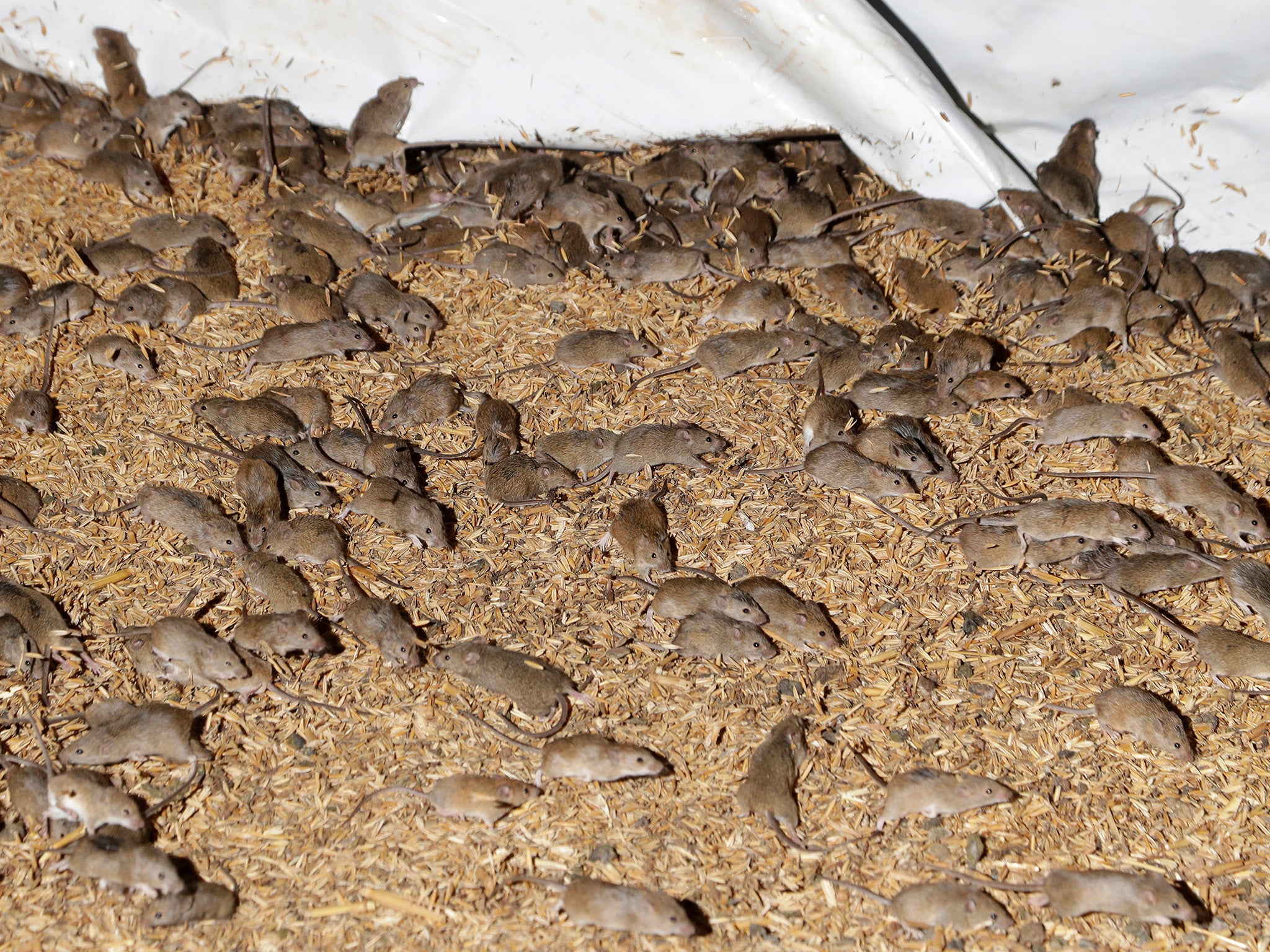Australia mouse plague: Fish regurgitating dead rodents prompt fears poison could enter food chain
Farmer says he gutted one Murray cod that had five mice in its intestines
Your support helps us to tell the story
From reproductive rights to climate change to Big Tech, The Independent is on the ground when the story is developing. Whether it's investigating the financials of Elon Musk's pro-Trump PAC or producing our latest documentary, 'The A Word', which shines a light on the American women fighting for reproductive rights, we know how important it is to parse out the facts from the messaging.
At such a critical moment in US history, we need reporters on the ground. Your donation allows us to keep sending journalists to speak to both sides of the story.
The Independent is trusted by Americans across the entire political spectrum. And unlike many other quality news outlets, we choose not to lock Americans out of our reporting and analysis with paywalls. We believe quality journalism should be available to everyone, paid for by those who can afford it.
Your support makes all the difference.Poisonous bait used in an effort to eradicate a mouse plague affecting parts of southeast Australia may be harming other native species, including galahs, pigeons and fish, it has been claimed.
Thousands of farmers in parts of New South Wales, Queensland and Victoria states are dealing with a rodent infestation that has ravaged crops, gnawed through farming equipment and household appliances, caused power blackouts and invaded supermarkets.
The infestation has been driven by wet weather that has provided ample food for the mice, fuelling their fast reproductive cycle.
Pellets laced with poison have been used alongside other traps and buckets of water to catch and kill the mice, however, conservationists and animal activists have warned about the potential for other species to be affected.
Photos shared on Reddit showed a flock of galahs lying dead on the ground in what the contributor said was the result of inadvertent poisoning.
In the post, titled “This is the reality of using baited grain to kill mice. Bait the mice, not our native animals”, Reddit user “Chessikins” wrote that they had been looking after “poisoned galahs for quite a while now”.
They wrote: “Sorry if images are confronting, but this is the reality of the mouse plague … This is just a devastating situation all round.”
Separate posts in the Facebook group Australian Wildlife claimed pigeons were dying as a result of the poisoned mouse bait, and that other species could be at risk if the chemicals got into the local water supply of food chain, including fish and even domestic pets.
“In the past week, I have counted four dead galahs and about 10 pigeons,” wrote one. “Their bodies have no apparent injuries. I am wondering if the dead birds ate the mouse bait that is being dropped in this area?”
![A young galah foraging on the ground [file photo]](https://static.independent.co.uk/2021/06/01/09/iStock-1205410292.jpg)
Farmer Stu Crawford, from Narromine, NSW, told Australia’s ABC network: “Fish are eating mice and there's the potential for that poison to enter the food chain through that. It has got huge ramifications and it's not worth the risk.”
Mr Crawford said he had recently gutted one Murray cod that had five mice in its intestines.
He added: “We’ve seen a lot of mice either being regurgitated by fish as they're caught, as they’re brought into the boat, or released – so cod vomiting or regurgitating up dead mice.”
It comes amid fears that the use of a banned poison referred to as “napalm” could, if approved, have a further damaging impact on the local wildlife.

NSW state government has ordered 5,000 litres of Bromadiolone from India. The federal government regulator has yet to approve emergency applications to use the poison on the perimeters of crops.
The state’s agriculture minister, Adam Marshall, said: “We’re at a critical point now where if we don't significantly reduce the number of mice that are in plague proportions by spring, we are facing an absolute economic and social crisis in rural and regional New South Wales.
“We're having to go down this path because we need something that is super-strength, the equivalent of napalm to just blast these mice into oblivion.”
Critics fear the poison will kill not only mice but also animals that feed on them, including wedge-tail eagles and family pets.



Join our commenting forum
Join thought-provoking conversations, follow other Independent readers and see their replies
0Comments